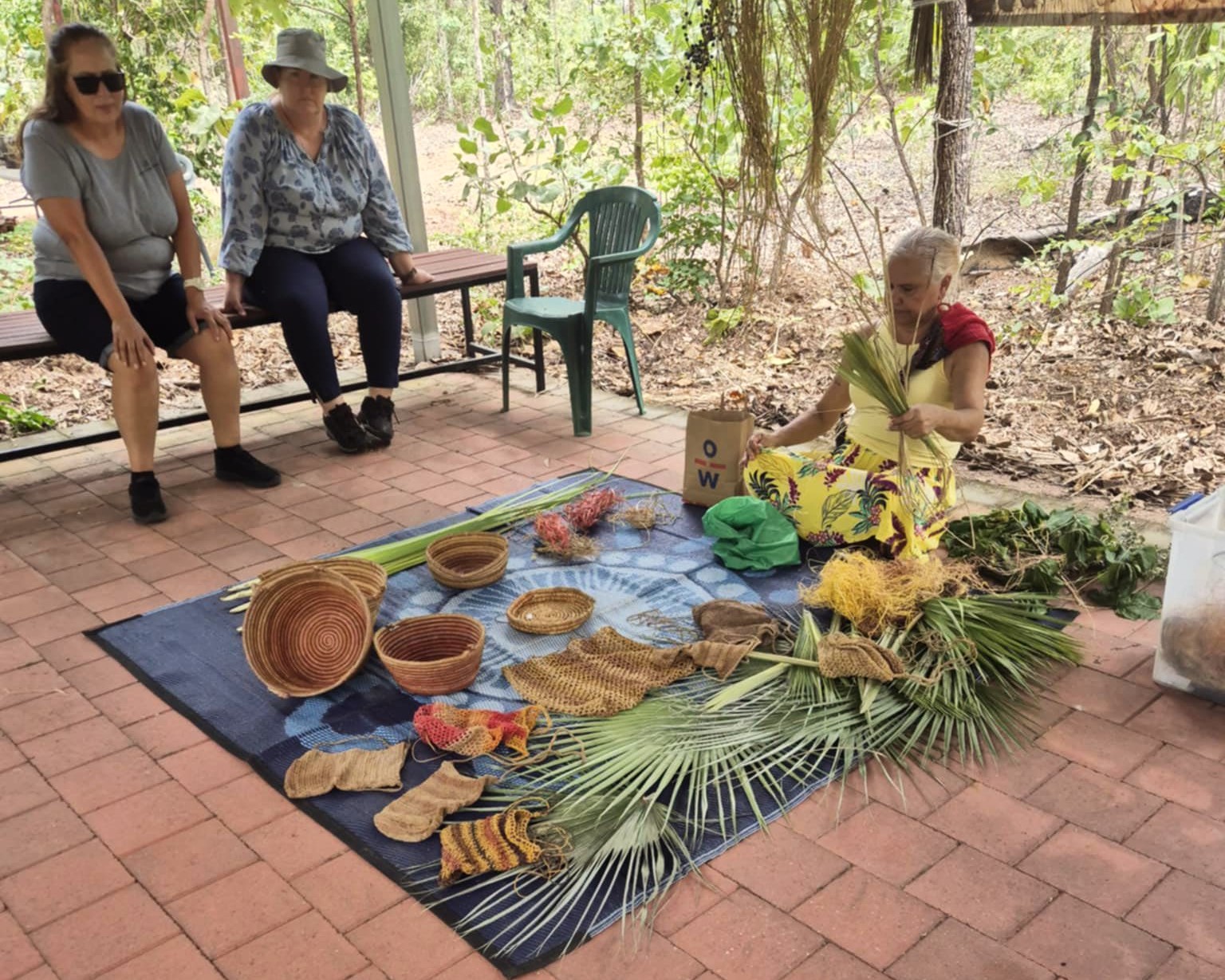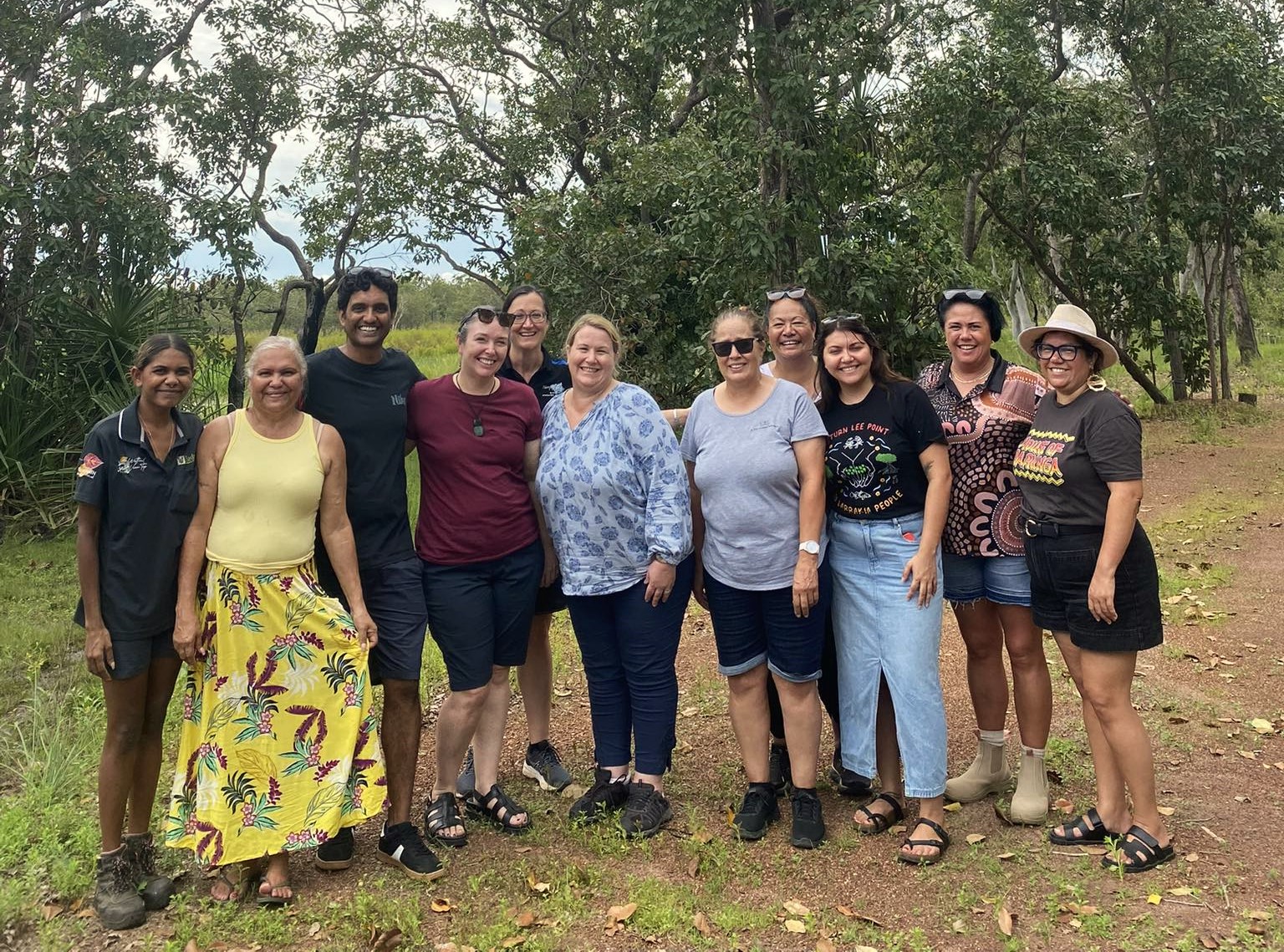As the world continues to face pressing challenges related to climate change, food security, and sustainable land management, Indigenous women are increasingly stepping forward with solutions grounded in thousands of years of cultural knowledge and stewardship of Country.
Last week, a groundbreaking initiative—the Te Pu Oranga Whenua & On Country Indigenous Women in Agriculture Knowledge Exchange came to my beautiful Larrakia Country. Over two days, Indigenous women from Australia and Aotearoa (New Zealand) joined forces in a powerful exchange of ideas, experience, and connection. The exchange coincided with the NT Food Futures Conference, Northern Australia's leading agricultural event, and proudly centred Indigenous voices within the broader agricultural landscape.
The purpose was clear: to bring together Indigenous women who are actively leading, innovating, and influencing agriculture and land management, and to create space for deep cultural and professional knowledge sharing. The exchange focused on the interconnectedness of cultural knowledge, regenerative agriculture, food sovereignty, and climate resilience—and how Indigenous women are uniquely positioned to lead in this space.
A moving Larrakia Saltwater Ceremony was held welcoming participants to Country with a heartfelt offering of stories, song, and saltwater. It was a moment of spiritual grounding and reverence that showcased the hospitable ways of the Larrakia people. In the spirit of cultural reciprocity, local Māori women were invited to participate, and in return, they offered a soulful waiata (song), filling the air with the powerful synergy of two First Nations cultures bound by shared histories, values, and connection to land and sea.
We headed south touring Humpty Doo Barramundi and a local prawn farm, sparking important conversations around how sustainable aquaculture practices can be adapted and applied in Indigenous communities back home. These site visits provided tangible examples of how innovation and cultural knowledge can come together to support food security, economic development, and environmental care.
As the sun set, we gathered at Soul Essence on the Bay, a proudly Larrakia-owned restaurant, to share a meal of local delicacies like magpie goose, crocodile, and kangaroo dishes. The flavours of Country were more than just nourishment—they were a celebration of culture and community, a reflection of what it means to feed not only the body, but also the spirit.

On the last day, we visited Pudakul Aboriginal Cultural Tours, located just outside of Darwin. Hosted by local custodians Aunty Norma and Tarizma, this immersive experience deepened our understanding of Country and the bush foods, seasonal cycles, and cultural practices that have sustained Aboriginal people for millennia. The hands-on learning—through weaving, painting and stories —reminded everyone that agriculture is not just science; it is culture, identity, and relationship to place.
One of the most powerful elements of the exchange was the presence of Te Pu Oranga Whenua, a collective of Māori women leading agricultural and environmental work in Aotearoa. Their presence brought a rich layer of trans-Tasman connection, enabling deep conversations around colonisation, sovereignty, and the ongoing fight for land, voice, and cultural integrity. These exchanges fostered bonds that extended beyond shared challenges—creating a sisterhood rooted in strength, resilience, and shared purpose.
The gathering also brought together policymakers, researchers, educators, and industry leaders—including representatives from CSIRO Agriculture and Food, government departments, and grassroots organisations. Together, they explored how Indigenous women's knowledge can and should shape future policies, investment strategies, and program design.
Beyond the practical, the event was grounded in Indigenous ways of knowing—yarning circles, story-sharing, and cultural exchange were central. There was no separation between personal and professional experience—everything was connected, everything mattered.
The Knowledge Exchange highlighted several key themes:
Food sovereignty as self-determination: Reclaiming food systems as a path to healing, economic independence, and cultural revitalisation.
Climate resilience through cultural knowledge: Recognising the proven value of traditional land and fire management in mitigating climate impacts.
The importance of networks: Building strong, culturally safe, and supportive networks for Indigenous women navigating agricultural, academic, and policy spaces.

As one participant beautifully shared, "This wasn't just an event—it was a reconnection to who we are, and a reminder of the power we hold when we come together as women, as landholders, and as leaders."
The Darwin Knowledge Exchange was a beginning, not an end. It laid the foundation for ongoing partnerships, future exchanges, and greater investment in the leadership of Indigenous women across food, land, and agricultural systems.
As we look toward a more sustainable and just future, it's clear: Indigenous women will be at the forefront—leading with care, courage, and culture.
